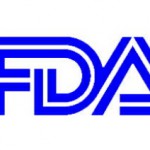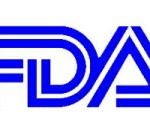The FDA has released the final Food Safety Modernization Act (FSMA) rule on Sanitary Transportation of Human and Animal Food. The earliest compliance dates for some firms begin one year after publication of the rule in the Federal Register. Problems in transportation, including mishandling and dirty containers, have been the cause of some food poisoning outbreaks over the years. The goal of this rule is to "prevent practices during transportation that create food safety risks, such as failure to properly refrigerate food, inadequate cleaning of vehicles between loads, and failure to properly protect food." The rule builds on safeguards envisioned in the 2005 Sanitary Food Transportation Act. Unsanitary transportation practices have been discovered over the years, and regulations are … [Read more...]
FDA Addresses Spice Safety
The FDA has been analyzing a two year nationwide study to collect information on the presence of Salmonella in retail packages of spices consumers buy in supermarkets, ethnic markets, discount stores, and on the internet. There have been several recalls of spices and herbs in the past few years for Salmonella contamination, and a Salmonella outbreak linked to spices in Sweden sickened 178 people last summer. An FDA report in 2013 found that 12% of imported spices are tainted with pathogenic bacteria or filth. The draft risk profile found that the presence of pathogens such as Salmonella, and filth in spices is a "systemic challenge" and that the problem relates in part of poor or inconsistent use of appropriate controls to prevent contamination. In the study, spice shipments from 79 … [Read more...]
CFA Disappointed with Food Safety Funding Budget Request
The Consumer Federation of America (CFA) is disappointed with the President's FY 17 budget request for food safety funding for the Food and Drug Administration, which proposes almost no new funding for food safety activities. Thomas Gremillion, Director of Food Policy at CFA said in a statement, "with the Food Safety Modernization Act, Congress recognized the need for FDA to implement a new system - one that prevents foodborne illness rather than reacting to it after the fact. FDA needs adequate funding to take on its new oversight responsibilities under FSMA. The President's budget will mean more delay in implementing the law, which Americans will pay for in the form of avoidable hospitalizations and deaths caused by foodborne illness." FSMA passed through Congress in 2010. The FDA … [Read more...]
FDA Examining Raw Milk Cheese Criteria
Cheesemakers, especially artisan producers, have suggested that the FDA is applying safety criteria to raw milk cheese production that limits producers without benefitting public health. Raw milk cheeses have been linked to recalls and food poisoning outbreaks in the past several years. Raw milk cheese produced by Family Cow in Pennsylvania caused Campylobacter illnesses in 2013, and there have been dozens of recalls of raw milk cheeses over the years. Raw milk cheese has been recalled for Campylobacter, Salmonella, E. coli, and Listeria monocytogenes contamination in all of the four years Food Poisoning Bulletin has been published. Some studies have concluded that aged raw milk cheeses are safe to eat, since the aging process changes the composition of the cheese. Aging reduces the … [Read more...]
FDA Finalizes FSMA Rule for Food Importers
The FDA has finalized the Foreign Supplier Verification Programs for food importers, in accordance with the Food Safety Modernization Act of 2011. This rule requires that food importers perform "certain risk-based activities to verify that food imported into the United States has been produce din a manner that meets applicable U.S. safety standards." FDA head Michael Taylor said in a statement, "under the new rules, importers will have the obligation to verify they are meeting U.S. standards. This is a fundamental paradigm shift from the FDA detecting and responding to problems with imported foods to industry being responsible for preventing them." Imported food makes up almost 20% of the food Americans eat. We import 52% of fresh fruits and 22% of the fresh vegetables in our diet. … [Read more...]
FDA Finalizes FSMA Rules on Produce Safety
The FDA finally finalized the rules on produce safety last week. Michael Taylor, the head of that agency said in a statement, "Its been a long and arduous task, to say the least. Finalizing the rules is just one part of building a modernized food safety system." The Food Safety Modernization Act was passed in 2011. The major rules in that Act have been slowly finalized by the FDA and the Office of Management and Budget. This latest new rule targets produce grows. They must ensure the safety of water in irrigation, since some outbreaks have been caused by produce contaminated by irrigation water that contains Salmonella or E. coli bacteria. They must make sure workers practice good hygiene in the field and while packing. A Cyclospora outbreak linked to imported cilantro lead to a ban … [Read more...]
Senator Durbin Vows to Continue Fight for FSMA Funding
Senator Dick Durbin (D-IL) has called for providing the FDA with the funds it needs to fully implement the Food Safety Modernization Act of 2011 (FSMA). The Senate appropriations committee passed a bill that fell short of the monies needed. The vote was along party lines. Durbin said that the huge recall of Aspen Foods and Barber Foods that are linked to two Salmonella outbreaks in Minnesota, Wisconsin, and Oklahoma highlights the need for increased vigilance. "The food safety allocation in this bill falls short of what is needed to reduce foodborne illness in this country," he said in a statement. The Food and Drug Administration estimates that it will take $276 million in additional funding to properly implement FSMA. The President's budget requested an increase of 109.5 million … [Read more...]
FDA Publishes Draft Guidance on Mandatory Recall Authority
The Food and Drug Administration (FDA) has published draft guidance for industry on mandatory food recall authority. The draft contains nonbonding recommendations. The mandatory food recall provisions are part of the Food Safety Modernization Act of 2011 (FSMA). Section 423 of the FD&C Act gives authority to the government to order a responsible party to recall food when FDA determines there is a reasonable probability that the food is adulterated or misbranded, and that use of the food will cause serious adverse health consequences or death to humans or animals. Before FSMA was enacted, FDA had to rely on corporations to voluntarily recall food products. This authority lets FDA force a recall when the responsible party chooses not to conduct a voluntary recall. The items that fall … [Read more...]
Health Groups Ask Congress for More Money for FSMA
Several health advocacy groups have written a letter, asking Congress to add $50 million to the FDA’s fiscal year 2015 budget to full fund implementation of the Food Safety Modernization Act of 2011 (FSMA). FDA has estimated that it needs an additional $300 million over the next few years to fully implement the law, which was the first reform of the nation’s food safety regulations in years. FDA is finalizing the rules of the law and is building the systems needed to implement it. FSMA changed FDA’s approach to food safety, focusing the agency’s efforts on preventing food safety problems before they occur rather than reacting to illnesses and outbreaks after they occur. The comprehensive food import oversight system section of FSMA is a first, making importer responsible for the safety … [Read more...]











